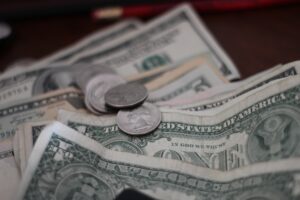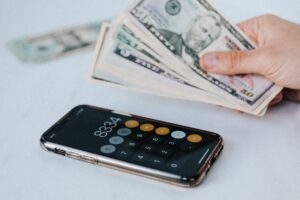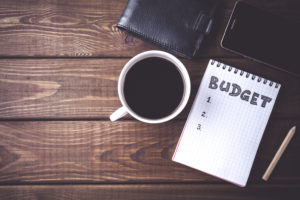
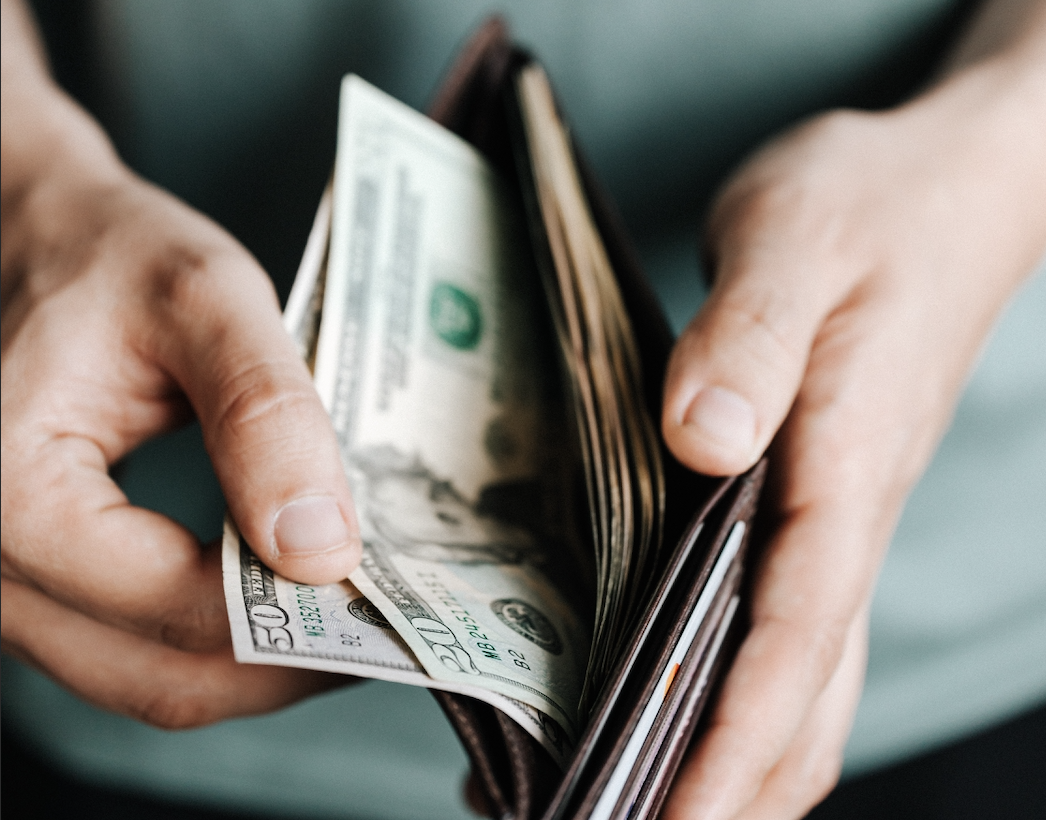
Should you pay cash for everything
Imagine going out on a nice date together.
You sit down, look at the menu, order some drinks, and enjoy your time together. Sure you had the intention of keeping the bill under $100 so you can stay within your budget but you’re having a fun evening.
You get the bill and it’s $125 with tax and you add $25 for a tip. $150, not $100.
Oh well, no big deal right?
Now imagine that same scenario but…oops!
You don’t have a way to pay with a credit card because you forgot everything at home. But for some reason, you had a $100 bill in your pocket, exactly what you budgeted for.
How would you spend differently?
You’d probably skip the drinks, and take a hard look at the pricing of what you decided to order and make different choices.
Plus, you’d account for tax and tip, pulling out the calculator on your phone to make sure you stayed under that $100 threshold.
In the end, the bill ends up being $75, and you leave the full $100 bill to tip your server.
There’s no question that paying in cash causes us to operate differently.
We pay greater attention and it often makes us stay on budget.
Now I’m not saying that you always have to pay cash, but it’s an interesting exercise to ask should you pay cash for everything.
Table of Contents
Benefits of paying cash only
Paying cash only can have some great benefits.
The biggest benefit of paying cash only is that you can only spend what you have.
People become more strategic and less impulsive, because there’s no backstop. Once you run out of cash, you run out.
Those who pay in cash also avoid some of the biggest wastes of money and can more easily cut their bad spending habits.
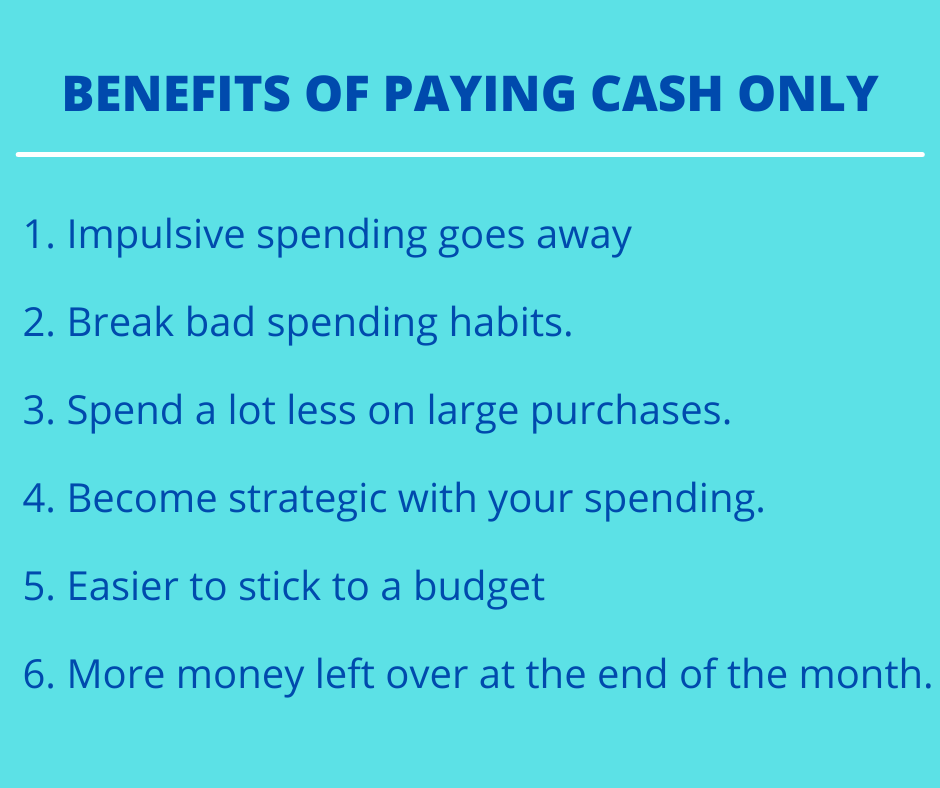
Now, I often hear people say, “Well, I pay my credit card balance in full every month and never carry a balance. Plus, I get cash back and earn rewards along the way.”
I totally get that, but there are many studies published showing that using credit cards causes us to spend more money than we otherwise would.
Whether you get 1, 2, 3, 4, or 5% back, if you spend 10% more or just aren’t as attentive to your spending, chances are that the extra expenses far outweigh the benefits.
Personal finance is personal, so I don’t like to prescribe what people should and shouldn’t do with their money.
But there is a way to use that paying cash mindset to spend less even if you do use a credit card or finance vs paying in cash.
Why do you think credit card companies offer rewards and cash back?
Most people think that card issuers and banks make their money off of the high credit card interest rates when people don’t pay their balances off in full. They do make a lot that way, but they also make it this way.
Credit card companies charge the vendor a 3% processing fee. That means that for every dollar you spend on a credit card, the person you paid will collect $0.97. The card processor gets $0.03.
That’s one of the ways the credit cards offer 1-2% cash back. They’re still keeping the rest of the 3% they charge.
Installment loans like those offered by Buy Now, Pay Later companies charge a 4% fee to the retailer. Why would retailers offer that?
Because they know that people spend more when it’s based upon monthly payments rather than the total cost, especially with large purchases.
Paying cash for large purchases: Act as if.

A few years ago, I bought my first car for cash. Why did it take me so long to do it?
Well, I was a wealth optimizer and figured that I could invest the money and earn more over time than the interest rate on the car loan.
Over time that has worked out for us, but I had no idea the power of buying a car with cold hard cash instead of financing it.
We were looking to buy a used minivan and I had figured out that the 4-5 year used market looked pretty good.
When we were thinking about financing the car through an auto loan, the two best options seemed to be the Honda Odyssey and the Toyota Sienna. Both were around $22,000 – $25,000, a little less than half the cost of buying new.
But then we thought, “What if we decided to pay cash for a car rather than finance it?”
Even the range of $22k-$25k doesn’t seem like much when you’re financing it ($50/mo), but when you’re paying cash, that’s $3,000 more leaving your bank account.
So we kept doing research and found a Town & Country. It had all the bells and whistles, more features than the others, same mileage, same year, but it was…$14,000.
At that point, it was a no-brainer.
Had we looked at financing $14,000 vs $22,000, that’s only $130/mo difference which doesn’t seem like much. But the total savings of $8,000 is a really big deal.
By paying cash for a large purchase, we actually spent 35% less which would be so much better than borrowing money at 1% and trying to invest for 7-10%.
Think about total cost and not monthly payments
Paying cash for everything usually equates to spending less money. When it comes to paying cash for large purchases, it can save enormous amounts of money.
The next part is to ask yourself, “What else would we do with that extra money?”
Money not spent can build your wealth or you can also do something more fun with it instead.
What would you do if you had an extra $8,000? Would you take a vacation? Pay off credit card debt? Invest it? Finally build up cash in your checking account?
Whether you decide to pay cash for everything, small purchases, large purchases, or nothing at all, use this perspective to shape how much you are willing to spend in total.
Take the next step
If you’re really interested in finding out how to have more money left over at the end of the month, I can help.
Book a free 30 minute call with me so we can talk through your budget and find ways to free up extra cash to put towards better use for you and your family.



